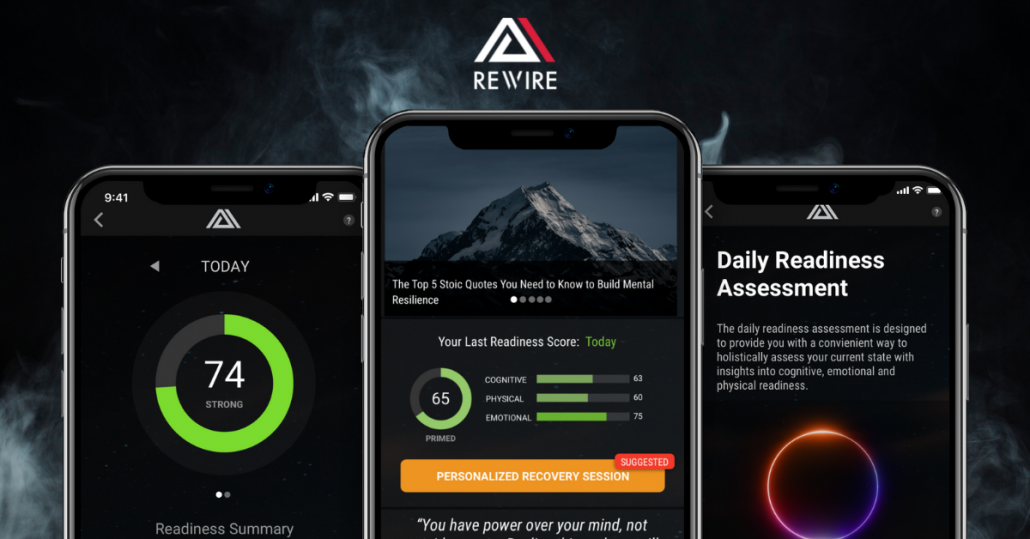The Holistic Connection: Mind/Body Connection
What is the Mind/Body Connection?
The connection between our minds and our bodies is the link between our thoughts, emotions, and attitudes and our physical health. This means that what we think has an impact on what we do.
In 2008, a scientific study proved that the mind/body connection was no longer a theory and countless other studies support this claim. Littrell (2008) found that stress decreases the activity of some white blood cells and Ramirez (2020) stated that the mind can heal the body.
How Can I Achieve a Mind/Body Connection?
Neuroscientists Richard Davidson and Amishi Jha and clinical mindfulness expert Jon Kabat-Zinn all support the scientific evidence that prove how stress and anxiety can affect our physical health. There are many different ways for individuals to explore this mind/body connection such as meditation or yoga.
Rewire’s integrated resilience training system can be used to train both the mind and the body, and works towards strengthening the mind/body connection. Our Neuro-Training protocols are backed by over 10 years of scientific research and have been shown to reduce perceived level of exertion thereby increasing physical performance and mental resilience over time.
What Does ‘Holistic’ Mean?
The holistic approach focuses on the interconnection of the individual aspects. This means that the whole person is considered when tackling a problem.
For example, Rewire uses physiological data including heart rate, sleep and training metrics along with cognitive and emotional measures to provide you with a holistic readiness score that represents the whole you. The Readiness Assessment that calculates the readiness score is holistic because it uses a set of data points including cognitive, physical, and emotional measures to get the complete picture.
Try it For Yourself!
Rewire’s recovery system includes evidence-based protocols to promote mind/body recovery, improve mindset, manage stress and prepare for training and competition.
- Guided Breathing
- Binaural Beats
- Self-Talk
- Subliminal Priming
- Visualization
Interested but not yet ready to subscribe? You can try a Mindset Recovery Session for free, no commitment, and any time over on our YouTube channel. Try this Rewire Guided Breathing Session with box breathing and binaural beats and, when you’re ready, start free today!
Sources
Littrell J. The mind-body connection: not just a theory anymore. Soc Work Health Care. 2008;46(4):17-37. doi: 10.1300/j010v46n04_02. PMID: 18589562.
Daniela Ramirez. (2020). Exploring the Mind-Body Connection Through Research. [online] Available at: https://positivepsychology.com/mind-body-connection/.
www.youtube.com. (n.d.). Is the Mind-Body Connection Scientific? [online] Available at: https://youtu.be/f3G6SAPEMuk [Accessed 8 Apr. 2022].












